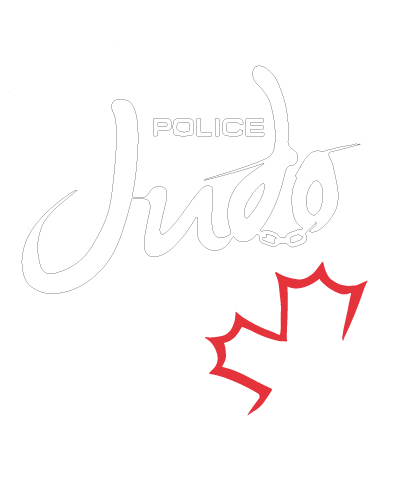Police Judo emphasizes development, not competition

Police Judo believe judo is the martial arts style best suited for police work because of its philosophy to take care of one’s partner. (Aaron Schulze/BCIT News).
Police Judo opened the doors to one of its black belt graduation ceremonies at the Vancouver Police Department Tactical Training Centre.
Police Judo is a group of instructors and police officers who teach people how to use judo in policing situations. It was established 25 years ago at Simon Fraser University (SFU) by a group of core martial artists practicing traditional judo. It was eventually moved to the Vancouver Police Department, where everyone began to practice judo competitively.
Sgt. Toby Hinton is one of the original members of Police Judo. Hilton says the competitive resulted in a rough start, as the group only had around half a dozen big, strong guys who were all police officers just hammering away at one another.
Sgt. Hinton and the rest of the members of Police Judo decided to change their model. They stripped the competitive aspect from their group and set new entry requirements. In order for someone to be accepted into Police Judo, they must pass a criminal record check, a security clearance, and get a police officer to sponsor them.
“Mixed martial arts isn’t about helping someone, it’s about trying to damage someone until they submit. That’s not what we’re about. We’re about having fun, enjoying workouts, and safe practice places. We don’t care about competition, we couldn’t care less; it doesn’t matter. We’re equipping people with something that is far more important than competition, we’re equipping them for life.” – Sgt. Toby Hinton, Vancouver PD/Police Judo
The change from competitiveness to developing helped Police Judo expand. Police Judo opened up at SFU in 2010, the Justice Institute in 2012, Kamloops in 2014, and now has 300 official members and has trained thousands of people.
Along with personal development, Police Judo wants to train people who are planning to become police officers before they go to an academy, so they’re prepared to deal with the pressure of dealing with the human body.
“If you want to become a massage therapist in British Columbia you’re probably going to do 2200 hours of practice before you get certified to lay hands on some on. Chances are it’s not a life or death situation. I don’t think we’re providing enough training time for people in the world of policing and law enforcement because they have difficult problems to solve sometimes in seconds, and they have to keep themselves safe and they have to keep other people safe.” – Sgt. Toby Hinton, Vancouver PD/Police Judo.
Hinton believes judo is the best martial art for police work because of its philosophy to take care of one’s partner and focus of physical body control rather than strikes. Hinton says police officers in countries such as Taipei are competent in body control because they spend 200 hours practicing judo and another 200 learning defense techniques.
“If you’re not competent in physical control it can create problems for you and other people, so what we want to try to do is to help people, especially younger people when they’re starting out in the field to get a better proficiency. Not everybody’s going to be cooperative, easy to deal with, or rational, but we have to figure out the most ethical way to deal with that given we have a job to do.” – Sgt. Toby Hinton, Vancouver PD/Police Judo.
Police Judo doesn’t expect its students to just understand the physical aspect, but also the mentality of being a good person. Hinton says Police Judo has a requirement that students won’t be able to grade up with doing community service and helping other people.

Officers in training, community peace keepers, students, seniors, everyone is welcome to learn judo safely. (Aaron Schulze/BCIT News).
Police Judo’s belief is that the most educated person is the one who knows the world around them. Hinton says Police Judo is all about giving people physical and mental skills they’ll need going forward in life, even if they don’t plan on going into law enforcement.

